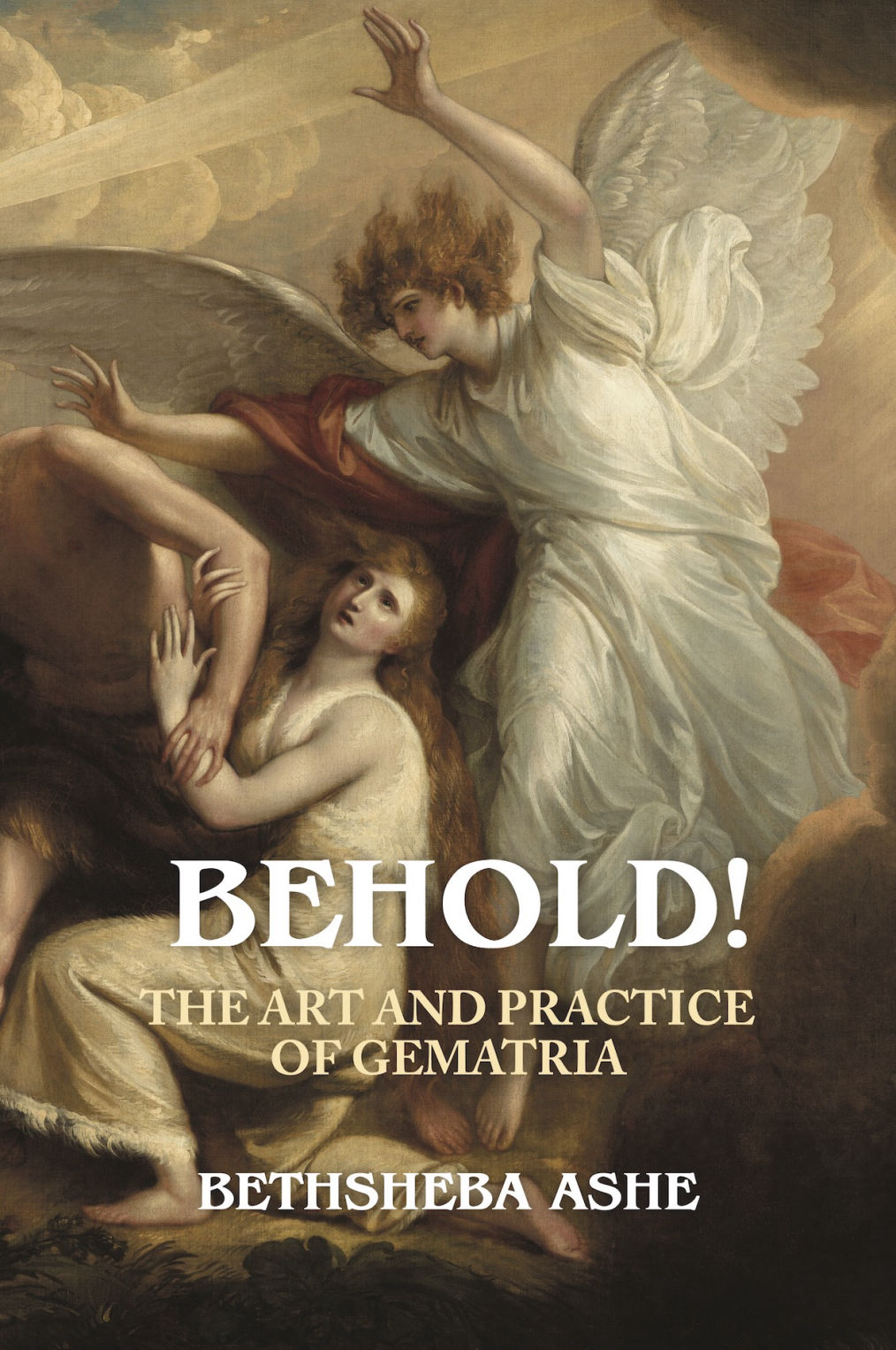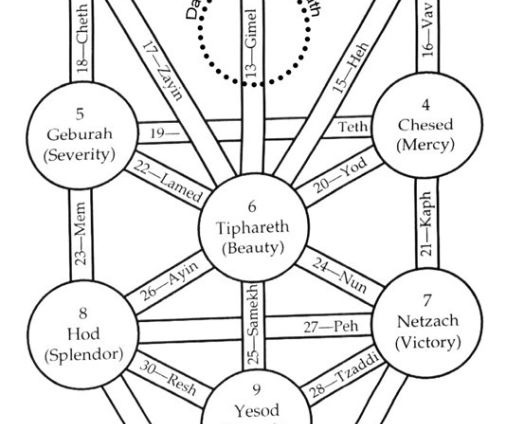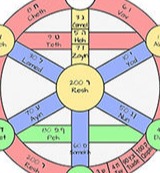Words and Calculations with the same Gematria value ...
| Word | Translation & Meaning | Transliteration | Strong's Number |
|---|
| אדמני | Meaning: reddish (of the hair or the complexion). Usage: red, ruddy. | ADMNI | 132 |
| אלעד | Meaning: Elad, an Israelite. Usage: Elead. | ALOD | 496 |
| אמתני | Meaning: well-loined (i. e. burly) or mighty. Usage: terrible. | AMThNI | 574 |
| אתנן | Meaning: a gift (as the price of harlotry or idolatry). Usage: hire, reward. | AThNN | 868 |
| אתנן | Meaning: Ethnan, an Israelite. Usage: Ethnan. | AThNN | 869 |
| בקש | Meaning: to search out (by any method, specifically in worship or prayer); by implication, to strive after. Usage: ask, beg, beseech, desire, enquire, get, make inquisition, procure, (make) request, require, seek (for). | BQSh | 1245 |
| גבנן | Meaning: a hump or peak of hills. Usage: high. | GBNN | 1386 |
| גבעל | Meaning: the calyx of a flower. Usage: bolled. | GBOL | 1392 |
| גלבע | Meaning: Gilboa, a mountain of Palestine. Usage: Gilboa. | GLBO | 1533 |
| הימן | Meaning: Heman, the name of at least two Israelites. Usage: Heman. | HIMN | 1968 |
| המס | Meaning: a dry twig or brushwood. Usage: melting. | HMS | 2003 |
| הפך | Meaning: to turn about or over; by implication, to change, overturn, return, pervert. Usage: × become, change, come, be converted, give, make (a bed), overthrow (-turn), perverse, retire, tumble, turn (again, aside, back, to the contrary, every way). | HPK | 2015 |
| הפך | Meaning: a turn, i. e. the reverse. Usage: contrary. | HPK | 2016 |
| הפך | Meaning: an upset, i. e. (abstract) perversity. Usage: turning of things upside down. | HPK | 2017 |
| זבולני | Meaning: a Zebulonite or descendant of Zebulun. Usage: Zebulonite. | ZBVLNI | 2075 |
| יהוה שלום | Meaning: Jehovah-Shalom, a symbolical name of an altar in Palestine. Usage: Jehovah-shalom. | IHVHShLVM | 3073 |
| יהוידע | Meaning: Jehojada, the name of three Israelites. Usage: Jehoiada. | IHVIDO | 3077 |
| יהץ | Meaning: Jahats or Jahtsah, a place East of the Jordan. Usage: Jahaz, Jahazah, Jahzah. | IHTs | 3096 |
| ימימה | Meaning: Jemimah, one of Jobs daughters. Usage: Jemimah. | IMIMH | 3224 |
| ימנה | Meaning: Jimnah, the name of two Israelites; also (with the article) of the posterity of one of them. Usage: Imna, Imnah, Jimnah, Jimnites. | IMNH | 3232 |
| יתניאל | Meaning: Jathniel, an Israelite. Usage: Jathniel. | IThNIAL | 3496 |
| כלנה | Meaning: Calneh or Calno, a place in the Assyrian empire. Usage: Calneh, Calno. | KLNH | 3641 |
| כמהם | Meaning: Kimham, an Israelite. Usage: Chimham. | KMHM | 3643 |
| כפה | Meaning: properly, to bend, i. e. (figuratively) to tame or subdue. Usage: pacify. | KPH | 3711 |
| כפה | Meaning: a leaf of a palmtree. Usage: branch. | KPH | 3712 |
| מהלל | Meaning: fame. Usage: praise. | MHLL | 4110 |
| מלכיה | Meaning: Malkijah, the name of ten Israelites. Usage: Malchiah, Malchijah. | MLKIH | 4441 |
| מסה | Meaning: to dissolve. Usage: make to consume away, (make to) melt, water. | MSH | 4529 |
| מסה | Meaning: abundance, i. e. (adverbially) liberally. Usage: tribute. | MSH | 4530 |
| מסה | Meaning: a testing, of men (judicial) or of God (querulous). Usage: temptation, trial. | MSH | 4531 |
| מסה | Meaning: Massah, a place in the Desert. Usage: Massah. | MSH | 4532 |
| נבשן | Meaning: Nibshan, a place in Palestine. Usage: Nibshan. | NBShN | 5044 |
| סככה | Meaning: Secacah, a place in Palestine. Usage: Secacah. | SKKH | 5527 |
| עזזיהו | Meaning: Azazjah, the name of three Israelites. Usage: Azaziah. | OZZIHV | 5812 |
| עכביש | Meaning: a spider (as weaving a network). Usage: spider. | OKBISh | 5908 |
| עלה | Meaning: to ascend, intransitively (be high) or actively (mount); used in a great variety of senses, primary and secondary, literal and figurative. Usage: arise (up), (cause to) ascend up, at once, break (the day) (up), bring (up), (cause to) burn, carry up, cast up, shew, climb (up), (cause to, make to) come (up), cut off, dawn, depart, exalt, excel, fall, fetch up, get up, (make to) go (away, up); grow (over) increase, lay, leap, levy, lift (self) up, light, (make) up, × mention, mount up, offer, make to pay, perfect, prefer, put (on), raise, recover, restore, (make to) rise (up), scale, set (up), shoot forth (up), (begin to) spring (up), stir up, take away (up), work. | OLH | 5927 |
| עלה | Meaning: a holocaust. Usage: burnt offering. | OLH | 5928 |
| עלה | Meaning: a leaf (as coming up on a tree); collectively, foliage. Usage: branch, leaf. | OLH | 5929 |
| עלה | Meaning: a step or (collectively, stairs, as ascending); usually a holocaust (as going up in smoke). Usage: ascent, burnt offering (sacrifice), go up to. | OLH | 5930 |
| עלה | Meaning: a pretext (as arising artificially). Usage: occasion. | OLH | 5931 |
| פחזות | Meaning: frivolity. Usage: lightness. | PChZVTh | 6350 |
| פכה | Meaning: to pour. Usage: run out. | PKH | 6379 |
| ציה | Meaning: aridity; concretely, a desert. Usage: barren, drought, dry (land, place), solitary place, wilderness. | TsIH | 6723 |
| קאת | Meaning: probably the pelican (from vomiting). Usage: cormorant. | QATh | 6893 |
| קשב | Meaning: to prick up the ears, i. e. hearken. Usage: attend, (cause to) hear(-ken), give heed, incline, mark (well), regard. | QShB | 7181 |
| קשב | Meaning: a hearkening. Usage: × diligently, hearing, much heed, that regarded. | QShB | 7182 |
| קשב | Meaning: hearkening. Usage: attent(-ive). | QShB | 7183 |
| שבק | Meaning: to quit, i. e. allow to remain. Usage: leave, let alone. | ShBQ | 7662 |
| תמהון | Meaning: consternation. Usage: astonishment. | ThMHVN | 8541 |
| תמונה | Meaning: something portioned (i. e. fashioned) out, as a shape, i. e. (indefinitely) phantom, or (specifically) embodiment, or (figuratively) manifestation (of favor). Usage: image, likeness, similitude. | ThMVNH | 8544 |
| תנומה | Meaning: drowsiness, i. e. sleep. Usage: slumber(-ing). | ThNVMH | 8572 |





Please SHARE this PAGE!